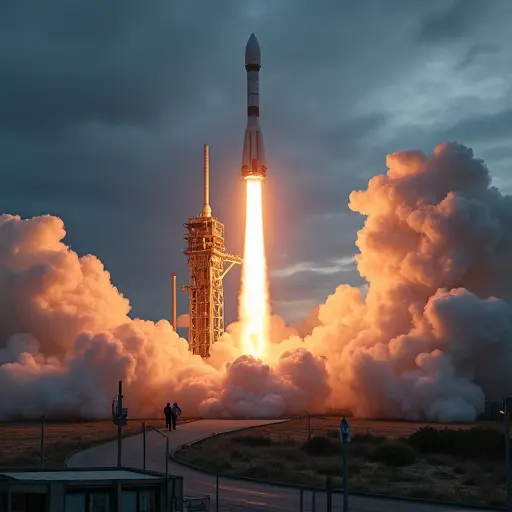As commercial space activities expand in 2025, legal jurisdiction in orbit faces critical challenges. The 1967 Outer Space Treaty prohibits national sovereignty claims, creating jurisdictional voids. Experts propose specialized space courts and arbitration to resolve disputes beyond Earth's atmosphere.

The Growing Need for Space Law Courts
As commercial space activities accelerate in 2025, with companies like SpaceX, Virgin Galactic, and Blue Origin launching civilians into orbit, the question of legal jurisdiction beyond Earth's atmosphere has become increasingly urgent. The 1967 Outer Space Treaty, which forms the foundation of international space law, explicitly prohibits national sovereignty claims in space, creating a legal void for traditional territorial jurisdiction. 'We're entering an era where disputes will occur in orbit, and we need legal frameworks to resolve them,' says Dr. Maria Rodriguez, a space law expert at the International Institute of Air and Space Law.
The Outer Space Treaty's Limitations
The Outer Space Treaty establishes that outer space is free for exploration and use by all countries, but it doesn't provide clear mechanisms for resolving disputes between private entities or between nations regarding commercial activities. This gap becomes particularly problematic as space tourism expands and private companies establish permanent habitats in orbit. 'The treaty was written for a different era—it didn't anticipate the level of commercial activity we're seeing today,' notes Professor James Chen of Harvard Law School's Space Law Program.
Emerging Solutions: Arbitration and Specialized Courts
Legal experts are proposing several solutions to address the jurisdictional challenges. Arbitration is emerging as a popular option due to its flexibility and international enforceability. The Permanent Court of Arbitration has developed space-specific rules, and there are proposals for an International Centre for the Settlement of Outer-Space Disputes (ICSOD). However, enforcement remains a challenge—how do you enforce an arbitration award made for activities that occurred in space? 'We need specialized space courts with international recognition and enforcement mechanisms,' argues Dr. Sarah Johnson, director of the Space Governance Initiative.
Current Legal Debates and Challenges
The legal community is actively debating several key issues: jurisdiction over private space stations, liability for orbital collisions, intellectual property rights for inventions made in space, and criminal jurisdiction for offenses committed in orbit. The National Law Review identifies changing export regulations and streamlined launch regulations as additional legal challenges facing the space industry in 2025. 'We're seeing regulatory frameworks evolve rapidly, but they're struggling to keep pace with technological advancements,' observes Michael Thompson, a space law attorney with over 20 years of experience.
The Future of Space Jurisdiction
As we look toward 2025 and beyond, the establishment of specialized space courts appears increasingly necessary. The United Nations Committee on the Peaceful Uses of Outer Space (COPUOS) continues to discuss these issues, but progress has been slow. Meanwhile, private companies are developing their own dispute resolution mechanisms. 'The space industry cannot wait for perfect international agreements—we need practical solutions now,' states Elon Reed, CEO of Orbital Solutions Inc. The coming years will likely see the emergence of hybrid systems combining international treaties, national legislation, and private contractual arrangements to address the complex jurisdictional questions arising from humanity's expansion into space.

 Nederlands
Nederlands
 English
English
 Deutsch
Deutsch
 Français
Français
 Español
Español
 Português
Português









